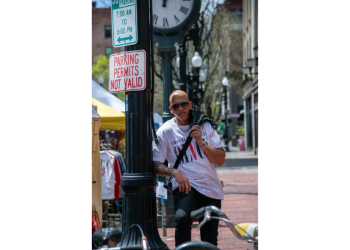Judge Lavine had Alzheimer’s disease, said her daughter, retired Prince George’s County District Court Judge Sherrie Krauser, who began reading her mother’s law books when she was 8.
As a young lawyer with a private practice in Hyattsville, Md., Judge Lavine was shut out of the clubby Prince George’s County Bar Association, and she started in the early 1960s what is now the Prince George’s County chapter of the Women’s Bar Association of Maryland.
A few years later, she became the first woman to serve as a Prince George’s County juvenile court master, the equivalent of a judge. She was credited with promoting efforts to raise the qualifications of those serving as legal representatives of juveniles and advocating the creation of supportive family services.
In 1978, she was the second woman appointed to the District Court, presiding mostly over misdemeanors, traffic violations, domestic disputes, landlord-tenant problems and small-claims cases. She lobbied lawmakers to pass legal protections for victims of domestic violence and helped to establish a substance abuse treatment facility as an alternative to time behind bars for drunk-driving offenders in the county.
She stepped down from the bench in March 1989 and, five months later, was replaced by her daughter. Judge Lavine continued to work as a substitute judge until an injury from a fall led her to fully retire in 2006.
At the time when both were adjudicating cases at the Hyattsville courthouse, the National Association of Women Judges said it believed they were the first mother-daughter duo to simultaneously hold judgeships in the same court.
Bessie Blafkin, the youngest of four siblings, was born in Philadelphia on Nov. 29, 1927. Her mother died soon after giving birth. Her father was a shoemaker. At 7, during the Depression, she was sent to live with her 21-year-old sister Clayre and her husband, Samuel Blavatt, and they relocated to Washington for his work as a butcher.
The future judge graduated in 1945 from Theodore Roosevelt High School in the District and was a prelaw student at George Washington University when she married Irvin Lavine, who graduated from the university’s law school and went on to become a patent and trademark lawyer.
After obtaining her bachelor’s degree from GWU in 1949, Judge Lavine put off her plans to attend law school to start a family in Prince George’s County. “The only problem was money,” she told The Washington Post. “We just couldn’t afford to have both of us in law school, so I took a breather.”
She gradually became involved in Democratic Party politics at the county level. Among other activities, she organized voter registration drives in Black communities.
In 1954, she was elected to the Prince George’s County Orphans’ Court, a forum to resolve disputes involving wills and estates but a position that didn’t require a law degree. She began taking night classes and earned a law degree from the University of Baltimore in 1961.
“She felt what it is like to be excluded,” said District Court Judge Patti Lewis, a mentee of Judge Lavine who founded the Maryland chapter of the National Association of Women Judges. “As a young Jewish woman starting in the Orphans’ Court, she was breaking barriers at every opportunity. She encouraged new lawyers considering a career in the judiciary, especially women litigators and attorneys of color, not to question their own abilities.”
Judge Lavine’s husband died in 2016. In addition to her daughter, Judge Krauser, of Los Angeles, survivors include two other children, Hilary Lavine of Rockville, Md., and Matt Lavine of Clarksville, Md.; eight grandchildren; and seven great-grandchildren.
























